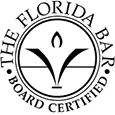
Seattle Brain Injury Attorneys
We will get you through this.
In the wake of a traumatic brain injury, you deserve a champion who will fight by your side with compassion and skill. Our team of accessible Seattle personal injury attorneys and legal experts will take on the insurance companies and legal system to get you the outcome you deserve.
Available 24/7
Our specialists are here to listen and help for free, no strings attached.
877-999-9999
for a free consultation
Seattle Brain Injury Guide
With as many as 5.3 million people in America living with a permanent disability due to a traumatic brain injury and 56,000 people dying from brain injuries each year, there’s little wonder why brain injuries are referred to as a quiet crisis in the United States.
The number of people suffering brain injuries each year is reportedly enough to fill the city of Detroit. There are seven such “cities” in the nation already, and a third of the residents there are under the age of 14.
If you or your loved one has suffered a traumatic brain injury in Seattle due to someone else’s negligence, there may be compensation available to you to help with medical and other expenses.
An experienced Seattle brain injury attorney can help you.
Contact us today – call (877) 999-9999 or email us. We’re available 24/7!
Seattle Legal Services
- Seattle Personal Injury
- Seattle Car Accident
- Seattle Bus Accident
- Seattle Truck Accident
- Seattle Bicycle Accident
- Seattle Burn Injury
- Seattle Motorcycle Accident
- Seattle Drunk Driving
- Seattle Nursing Home Abuse
- Seattle Slip and Fall Accidents
- Seattle Premises Liability
- Seattle Wrongful Death
- Seattle Dangerous Drugs
- Seattle Dog Bite
- Seattle Pedestrian Accident
- Seattle Medical Malpractice
- Seattle Construction Accident
- Seattle Workers’ Compensation
Find Out What Your Brain Injury Case Is Worth
Your insurance company may not be telling you everything. Know what you’re entitled to with a free consultation. Rest assured that we will never charge any fees unless we win. Request a free consultation with a Seattle brain injury attorney today.
What Is a Traumatic Brain Injury?
As explained by the U.S. National Library of Medicine, a traumatic brain injury happens when a bump, jolt, or other head injury causes damage to the brain. Half of all traumatic brain injuries are suffered in car accidents.
A concussion is the mildest form of a brain injury and occurs when your brain collides violently with your skull.
Those suffering from a concussion may not initially notice the symptoms of it, which may include:
- A lingering and worsening headache
- Repeated vomiting or nausea
- Convulsions or seizures
- Inability to awaken from sleep
- Slurred speech
- Weakness or numbness in the arms or legs
- Dilated pupils
In addition to concussions, there are other types of brain injuries, including:
- Hematoma: This condition involves clotting of blood outside the blood vessels and can be very serious as it causes pressure to build within the skull.
- Hemorrhage: Hemorrhages are uncontrolled bleeding, which when the hemorrhage occurs in the brain can result in blood collecting in the space around your brain or within the brain tissue itself.
- Edema: Edema is swelling within the brain due to injury. This also causes pressure to build up within your brain and presses the brain against the skull.
- Skull fracture: Unlike most of the bones in your body, your skull doesn’t contain marrow. While this makes for a strong bone, if the head is hit hard enough to break it, the inside is likely to suffer damage as well.
- Diffuse axonal injury: Although not as visible as some types of brain injury, diffuse axonal injuries are among the deadliest. These injuries aren’t caused by bleeding in the brain, but damages brain cells and makes them unable to function.
- Anoxic brain injury: An anoxic brain injury occurs when the brain is deprived of oxygen and cells begin to die off rapidly. Brain damage can begin within 30 seconds of oxygen deprivation. If a person is deprived of oxygen for two minutes, brain damage almost always occurs. Though every brain is slightly different, on average, a brain can only survive up to about four minutes without oxygen. Anoxic brain injuries are often caused by near-drowning, stroke, oxygen deprivation in babies at birth, choking, anaphylactic shock due to allergies, drug overdose, or a sudden blow to the windpipe.
Treating a brain injury involves a complex regimen of medication and rehabilitation, and no two injuries are the same.
An injured victim may face hospitalization, spend time in the Intensive Care Unit, undergo acute rehabilitation to regain as many activities of daily living as possible, spend time at a residential rehabilitation facility, undergo outpatient therapy, and even have to stay at an assisted living facility that provides housing and care for people with brain injuries.
Any number of scenarios involving violent blows to the head can cause a traumatic brain injury. Some of the more common causes include:
- Car accidents
- Truck collisions
- Motorcycle wrecks
- Slip and fall accidents
- Sports injuries
- Construction site accidents
- Pedestrian accidents
- Boating wrecks
- Recreational vehicle accidents
- Commercial vehicle accidents
- Workplace accidents
- 18-Wheeler accidents
- Bicycle accidents
- Physical violence
- Near drowning or deprivation of oxygen
How Are Brain Injuries Diagnosed?
 When someone seeks medical attention for a brain injury, they’re generally assessed on the Glasgow Coma Scale (GCS). GCS is a common scoring system used to describe a person’s level of consciousness following traumatic brain injury.
When someone seeks medical attention for a brain injury, they’re generally assessed on the Glasgow Coma Scale (GCS). GCS is a common scoring system used to describe a person’s level of consciousness following traumatic brain injury.
This simple test helps doctors to determine the severity of the head injury.
The GCS measures the following functions:
- Eye opening: The scale ranges from four, which is spontaneous eye opening, to one, in which the patient will not open their eyes.
- Verbal response: A number five on the verbal response scale means that the patient’s responses are oriented. A number one means that the patient is not verbal.
- Motor response: With six numbers on the motor response scale, the highest a six means that the patient obeys commands with the appropriate motor response. A number one means that there is no motor response.
As you can see, the higher the score on the GCS scale, the less severe the brain injury. A brain injury on an individual with a GCS score of 13-15 is considered mild. Those in the 9-12 point range are considered moderate. Scores of 8 or below are considered representative of a severe brain injury.
Mild brain injuries may result in temporary or permanent neurological damage that may not show up on CT or MRI tests. Moderate and severe brain injuries often result in long-term impairments in cognition, physical skills, and emotional or behavioral function.
While the GCS scale is typically a very accurate test, there are some factors such as drug or alcohol impairment, shock, or low blood oxygen that can alter the results.
Help for Those Living With a Brain Injury
Because brain injuries so often leave those that suffer with them with motor, sensory, cognitive, and behavioral deficits, the work done to help these individuals regain or relearn as much as possible often starts in the hospital. The initial focus is on helping the patient to regain simple physical, cognitive, and personal self-care skills.
However, many individuals require ongoing therapy and rehabilitation even after they’ve left the hospital. One component of brain injury healing is the provision of occupational therapy.
Occupational therapists work with the patient to improve skills needed in everyday life, including the following situations:
- Self-care
- Home management
- Rest and sleep habits
- Work demands
- Leisure
- Social participation
Occupational therapists provide guided activities to improve skills, which may include real-life activities such as going to the grocery store, to the bank, workplace, home, or obtaining transportation on a bus or a train. Occupational therapists are just one part of the team that treats a brain injury patient.
Other members of that team may include physical therapists, speech-language pathologist, neuropsychologist, social workers, and depending on the patient’s needs teachers or vocational rehabilitation specialists.
The Problems That Brain Injuries Cause
An injury to any part of the brain may result in damage to all of the brain.
However, there are specific issues that present themselves depending on the part of the brain that was injured, including:
- Frontal lobes: These are the largest lobes in the brain. Injury to the frontal lobes may cause a person to have problems with emotions and impulses, language, memory, and social behavior
- Parietal lobes: Damage to this part of the brain may cause a person to have difficulty recognizing and locating parts of the body.
- Temporal lobes: Damage to the temporal lobes may result in a loss of hearing, language problems, and difficulty with sensory skills such as recognizing a known person’s face.
- Occipital lobes: Damage to this area of the brain can lead to visual field defects as well as problems perceiving size, color, and shape.
- Cerebellum: Damage to the cerebellum may lead to uncoordinated movement and loss of muscle tone.
- Brainstem: Injuries to the brainstem may lead to the inability to control such functions as breathing, swallowing, and heart rate.
How Washington State Protects Those With Brain Injuries
If your brain injury occurred due to an accident caused by someone else’s negligence, Washington’s personal injury laws may protect your finances as healing takes place.
Many accident victims can seek compensation for medical and other expenses by filing a third-party claim with the at-fault party’s insurance. This is true in motor vehicle accidents, medical malpractice, and premises liability accidents.
However, those injured in Washington may also turn to the court for assistance by filing a personal injury lawsuit against the at-fault party or his or her insurance.
Here are some of the highlights of Washington’s personal injury law that may impact you if that is the legal option you choose.
- You must prove negligence: To have a successful outcome to your personal injury suit, you must be able to prove negligence on the part of the at-fault party. Negligence is established by showing: 1) The defendant (at-fault party) owed you a duty of care. In a car accident case, for example, the duty of care owed to other drivers and occupants would be to drive safely and obey traffic laws. 2) There was a breach in that duty of care. 3) This breach resulted in the accident that caused your injuries. The fourth step, once negligence has been established, is to prove the damages that you suffered in the accident.
- The types of damages that can be recovered via a personal injury lawsuit include economic damages such as past, current, and future medical expenses, lost wages, loss of essential services, property damage, and out-of-pocket expenses relating to your injury (such as travel to and from your doctor’s office). You may also seek to recover non-economic damages such as pain and suffering or loss of consortium. There are no damage caps in Washington for personal injury cases.
- Statute of limitations: The statute of limitations on a personal injury case is three years from the date of the injury. If that time passes before you file your lawsuit, you likely will be unable to obtain compensation for your injuries.
- Comparative fault: Washington uses a “pure comparative negligence” rule for personal injury cases. What this means is that you may still seek compensation from an at-fault party even if you were partially to blame for the accident that caused your injuries. However, any award you obtain through your lawsuit will be reduced by the percentage of responsibility you bear. For example, if you were 10 percent responsible for the accident that caused your injuries, the court is required to reduce your damage award by 10 percent.
Seattle Brain Injury Attorneys
Boohoff Law Seattle Office
920 5th Ave, Suite 1530
Seattle, WA 98104
Free Consultation
We Are Here For You 24/7
More Brain Injury Statistics
 What is the leading cause of brain injuries? Who is most likely to suffer from one?
What is the leading cause of brain injuries? Who is most likely to suffer from one?
Read on to find the answers to these questions and more, according to statistics from Brainline.
- Every day, 153 people in the United States die from injuries that include a traumatic brain injury.
- Nearly 90 percent of all people suffering from a traumatic brain injury are treated and released from the emergency department.
- Brain injuries come with a cost to society of about $60 billion per year.
- Children aged 0 to 4 years, older adolescents aged 15 to 19 years, and adults aged 65 years and older are most likely to sustain a traumatic brain injury.
- The leading cause of brain injuries varies depending on the age of the person involved. Falls are the leading cause of brain injuries in individuals aged 45 and older as well as children 0-14 years old. Motor vehicle accidents are the leading cause of brain injuries in adolescents ages 15-19 and adults under 45.
- For six years (2007–2013), while the rates of brain injury-related emergency department visits increased by 47 percent, hospitalization rates decreased by 2.5 percent and death rates decreased by 5 percent.
- Brain injuries are a contributing factor of about 30 percent of all injury-related deaths in the U.S.
- By the numbers, every American has more than a 1:160 chance of sustaining a traumatic brain injury each year.
- Males are almost twice as likely as females to suffer a traumatic brain injury.
- The area most often injured is the frontal lobes, which control thinking and emotional regulation.
- 47 percent of traumatic brain injuries are caused by falls. Being struck by or against an object results in about 15 percent of the brain injuries suffered each year, while 14 percent are caused by motor vehicle crashes.
Seattle Brain Injury FAQ
Do you have questions after you or a loved one suffered a traumatic brain injury due to another party’s negligence? Do you need help navigating the complexities of your brain injury claim?
Many victims who sustain a traumatic brain injury in an accident are uncertain of what to do next.
Question #1: How much compensation should I expect following a traumatic brain injury?
Depending on the severity, recovery from a traumatic brain injury could cost between $85,000 and $3 million throughout your lifetime. Those figures account for the medical costs alone. Injured victims may also be entitled to recover other losses incurred as a result of their injuries.
Compensation may also include lost wages and pain and suffering. As medical costs increase and other expenses begin to pile up, you may consider filing a brain injury claim. A brain injury claim allows injured victims to seek compensation from those who are legally liable for their injuries.
How much compensation should an injured victim expect to receive?
Add up your expenses.
A brain injury claimant’s demand package will outline and document the expenses they incurred as a result of an accident. If you have suffered a traumatic brain injury, your demand package may include: Medical expenses. Your medical expenses include the initial hospital visit, diagnostic testing, and any subsequent hospitalizations or follow-up care.
If victims’ injuries require long-term care in an assisted living facility, those costs may be included. In addition, you can include the costs of physical and occupational therapy. Many traumatic brain injuries require victims to learn to cope with temporary or permanent limitations.
The costs of psychological therapy to address emotional distress following a traumatic brain injury also qualify as medical expenses. Experienced brain injury attorneys may help clients establish and justify all medical expenses associated with their traumatic brain injury.
Medical expenses may also include an estimate of future medical costs, if necessary. Lost wages. When you have a severe traumatic brain injury, it may prevent you from returning to work.
Traumatic brain injuries can present a wide range of symptoms, including difficulty focusing or trouble completing cognitive processes. If your job duties rely heavily on memory or focus, it may be quite some time before you can return to work. While some employers may work with employees to accommodate their limitations, others may require you to take time off. V
ictims whose injuries render them unable to return to work will suffer a substantial loss of income as they recover. Lack of emotional regulation due to your injury can also make it difficult to function in many work environments. Traumatic brain injuries may make it impossible for victims to perform job functions requiring regular contact with customers.
If your injuries prevent you from returning to work permanently, you can also include lost earning potential as part of your brain injury claim. Including lost earning potential as part of your demand package can make it easier for you to return to school or gain other certifications, if needed, so you can maintain as much independence as possible following your accident.
Pain and suffering. While traumatic brain injury may not result in substantial physical pain and suffering, it often causes significant emotional anguish. Individuals may become frustrated as they struggle to handle tasks simple tasks they once performed with ease.
Speaking with an attorney can help you understand how pain and suffering costs may be included in your demand package.
Consider the extent of coverage for the responsible party.
If you suffer a traumatic brain injury in an auto accident in Washington, the other driver may only carry minimum liability insurance.
Minimum liability insurance provides injured victims with a maximum of $25,000 for their medical expenses. As mentioned, recovery costs for traumatic brain injuries typically far exceed that amount. Other entities may carry much higher coverage or face higher financial liability in the event of an accident.
For example, premises liability accidents, accidents involving commercial vehicles, and accidents on construction sites may expose responsible parties to greater financial liability.
Contact an attorney to discuss how an insurance policy may affect your brain injury claim. An attorney can inform clients of any potential limitations that may apply to their ability to recover compensation.
Question #2: How long does it take to get compensation for a traumatic brain injury?
The time it takes for injured victims to receive compensation for their traumatic brain injury will depend on a variety of factors. Below, we discuss some of those factors.
Have you made the maximum medical improvement possible?
If you have already reached the maximum possible medical improvement, you can better estimate the full medical costs of your recovery. In addition, you can more easily quantify any anticipated future medical costs.
Future medical expenses may include the cost of a caretaker, if you cannot take care of yourself. However, even the best doctors cannot precisely predict the recovery process from any individual’s specific injuries. This is especially true for victims suffering from traumatic brain injury. Injured victims are entitled to file a brain injury claim long before they reach a full recovery.
You should contact an attorney as soon after your accident as possible. While you may need to wait until your recovery progresses to finalize your claim, the sooner you begin the process, the sooner you may expect to be compensated.
Is it clear who caused the accident?
If multiple parties share legal liability for your accident, it may take longer to reach a settlement that all parties agree to. In addition, if you cannot clearly demonstrate who caused the accident, settlement negotiations may be prolonged.
In some cases, the responsible entity or that entity’s insurance company may attempt to shift legal liability. When responsible parties attempt to implicate other liable parties, the discovery phase may last much longer than usual.
Any delays in the process will only cause a delay in receiving the compensation you deserve.
How high are your medical expenses and, therefore, the amount you demand in compensation?
When you deal in higher-dollar medical expenses, you may find that it takes longer to receive compensation for your injuries. If your costs clearly exceed the maximum limits of the insurance policy, you may be promptly presented with a settlement offer.
On the other hand, if your costs are not clearly more than the coverage limits, a liable entity may feel they have room to negotiate. The brain injury claims process may involve several phases of negotiation.
How much are you willing to negotiate?
Some traumatic brain injury victims wish to maximize their compensation as much as possible. To obtain maximum compensation, victims may have to look to an entity’s insurance company or parent corporation.
Others find themselves more willing to accept a settlement offer because they would prefer to be compensated as soon as possible. Fast cash may be worth the reduction in total compensation. The more you want to negotiate or the harder you want to fight, the longer it can take to get the funds you need. If necessary, you claim may be required to attend mediation or proceed to trial.
In either case, you can expect the resolution of your case to be delayed. An experienced attorney may help injured victims understand when it is in their best interest to continue the fight or accept the settlement offer.
Question #3: Who bears legal liability for my traumatic brain injury?
The identification of the parties who are legally liable for your traumatic brain injury will depend on the circumstances surrounding your accident.
In determining legal liability, an attorney may consider:
- Who owed you a duty of care at the time of the accident?
- How was that duty of care violated?
- How did that violation of the duty of care lead to your injuries?
In many cases, multiple parties may share liability for your accident and, therefore, for your medical expenses. Consulting an attorney can help you identify all liable parties.
Identifying all liable parties will increase the chances of maximizing a victim’s recovery. Consider the following scenarios:
Traumatic Brain Injury from an Auto Accident
Auto accidents often cause your head to strike objects in the vehicle or the vehicle itself. That extensive force can cause traumatic brain injury. In some auto accidents, the other driver clearly bears liability for the accident.
Other factors, however, may also contribute to an auto accident, including:
- Improper vehicle maintenance
- Commercial companies violation of driver safety regulations and requirements
- Mechanical failures due to defective parts
In some cases, other entities may share the blame for the accident. If a mechanical failure caused the accident, the vehicle or parts manufacturers or the mechanic responsible for the vehicle’s maintenance may be liable for damages.
If a driver falls asleep at the wheel, an employer requiring work hours above the permitted maximum may share liability. Consulting with an attorney can help you determine if any of these factors may influence your claim.
Traumatic Brain Injury in a Nursing Home or Hospital
In a nursing home or hospital, patients expect doctors, nurses, and other employees to take the necessary precautions to ensure your safety.
Unfortunately, sometimes, facilities fail to take proper care of their patients. If you sustain further injuries due to inadequate medical care or supervision, the facility may be responsible for any resulting damages.
Traumatic Brain Injury After a Slip and Fall
When you slip and fall, whether on level flooring or down a flight of stairs, you may suffer a forceful impact to your head. As a result, you may suffer a traumatic brain injury.
If the premises owner or manager failed to take proper precautions to prevent falls, they may be liable for your injuries.
To reduce the risks of injury, public buildings should ensure they provide:
- Appropriate lighting in stairways and walkways
- Handrails, when needed
- Outdoor walkways free of ice during the winter months
- Clearly labeled spills, wet floors, or other hazards
- Quick removal of any hazards that may cause visitors to injure themselves
Traumatic Brain Injury From a Construction Accident
On a construction site, the construction company bears primary responsibility for keeping the site as safe as possible. Many construction sites, however, include multiple contractors and subcontractors.
All construction supervisors must maintain safety standards to maintain to ensure the safest possible environment for both workers and visitors. When a construction company’s employees do not take proper precautions to ensure safety, the company may be liable for any resulting injuries.
If an employee’s negligence causes a traumatic brain injury, the employer may be responsible for damages. A construction site owner may fail to fully disclose a hazard on site. If that hazard causes a traumatic brain injury, liability may rest with the site owner.
Question #4: How long do I have to file a brain injury claim following a traumatic brain injury?
In Washington, the statute of limitations sets the time period within which an injured victim may file a brain injury claim. Typically, a claim must be filed within three years of the date of the accident.
However, several factors can extend the statute of limitations. Consult with an attorney as soon as possible to determine whether you are eligible to file your claim. Keep in mind that the sooner you contact an attorney, the sooner the attorney may begin putting together your demand package. In turn, the sooner you may seek the compensation you deserve.
Contacting an attorney soon after your accident can also make it easier to collect critical evidence. With time, it may become increasingly difficult to obtain witness statements or gather video footage of your accident, if any exists.
Question #5: Do I need an attorney to file a claim for my traumatic brain injury?

You have the right to work directly with the responsible entity or that entity’s insurance company to file your brain injury claim. Hiring an attorney, however, may offer injured victims several advantages.
A brain injury lawyer becomes an injured victim’s legal advocate.
An attorney may handle the legal complexities of your case while keeping your best interests in mind. Many accident victims find that having a brain injury attorney helps alleviate stress as they navigate the claims process.
An experienced brain injury lawyer may provide advice at every step of the claims process. When appropriate, an attorney will compile your demand package and may take your case to court, if necessary.
Experience helps attorneys to estimate the amount of compensation an injured victim may expect to receive. An attorney may advise you regarding the fairness of an insurance company’s settlement offer.
Get Help Now – Call Our Seattle Brain Injury Attorneys Now
If you or a loved one suffered a brain injury due to someone else’s negligence, we’d like to help you understand your legal options.
For a free consultation, call us at (877) 999-9999 or contact us at Boohoff Law online.
Client Testimonial
“I would like to thank Lindsey and her team for the great work and the professional job they did in handling my case. Boohoff law always kept me in the loop and let me know what the next step was going to be. I would highly recommend this firm to Everyone.” – Carl C.
Review: 5/5 ★ ★ ★ ★ ★
Boohoff Law P.A.
Seattle Location
920 5th Ave, Suite 1530
Seattle, WA 98104
(877) 999-9999
Our process.
-
1. Understanding your optionsFrom your first call, our team takes the time to listen and learn your unique situation. We’ll walk you through the factors that will increase the value of your claim and help you mitigate risks. Above all, we help you envision a personalized path forward.
-
2. Connecting with your attorneyYou will know within 1-2 days if our team can help. Your personal attorney and legal team will guide you through what to expect, ensuring you’re always informed about what’s going on. You will stay in control as an included member of the team working on your case.
-
3. Supporting documentationOur diligent legal team will work with you to make sure all the necessary documentation is complete. This includes insurance policy details, medical records, medical and repair bills, and lost wages.
-
4. Formulating a winning planWe’ll assess your case — every detail, every angle — as we fight for the outcome you deserve. We roll up our sleeves and bring an unrelenting commitment and proven track record to formulate a winning game plan, keeping you clearly informed along the way.
-
5. Negotiation and litigationWe are relentless in pursuing what’s right. We work with toughness and resilience as we negotiate directly with the defense to obtain the compensation you deserve. In cases that demand a court trial, our attorneys are expert personal injury litigators with the talent to maximize policy volumes and outcomes.
Recovery is personal.
We’re here for you.
We’re close by. And if you can’t make it to us, we’ll meet you where you need us, at home or in the hospital.
You're better off with Boohoff.











The information on this website is for general information purposes only. Nothing on this site should be taken as legal advice for any individual case or situation. This information is not intended to create, and receipt or viewing does not constitute, an attorney-client relationship.
available 24/7
(877) 999-9999
